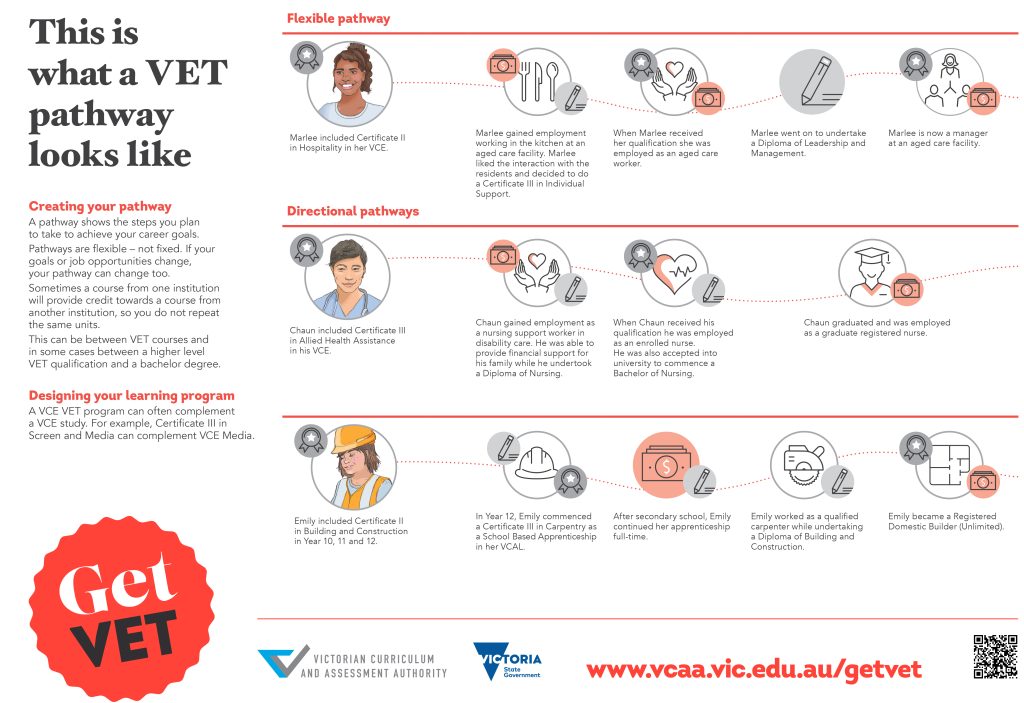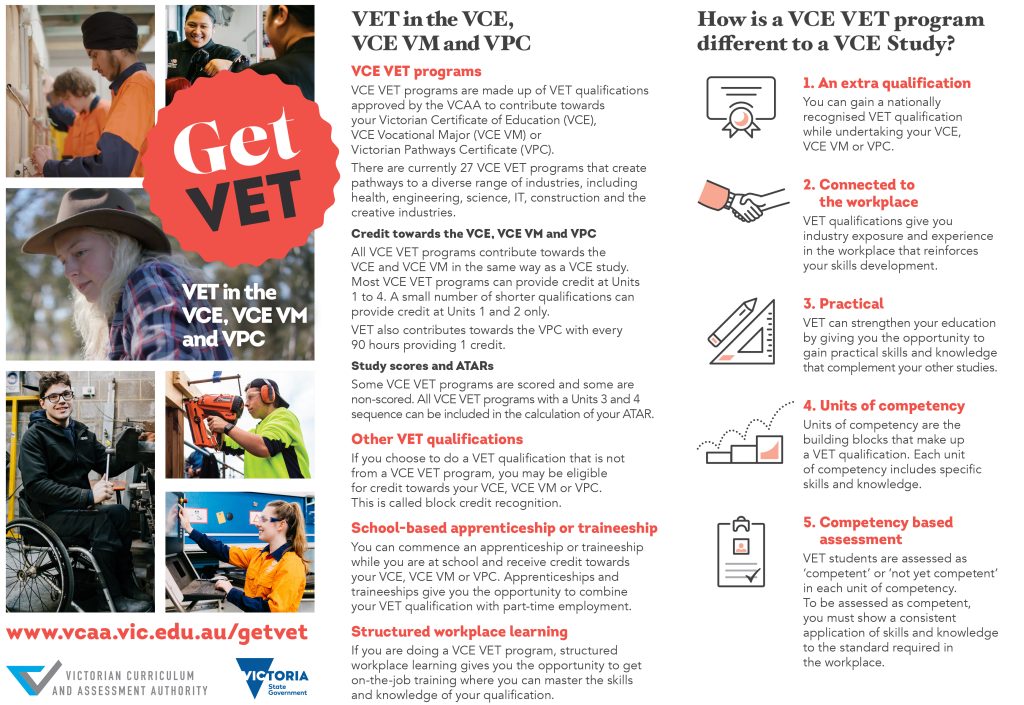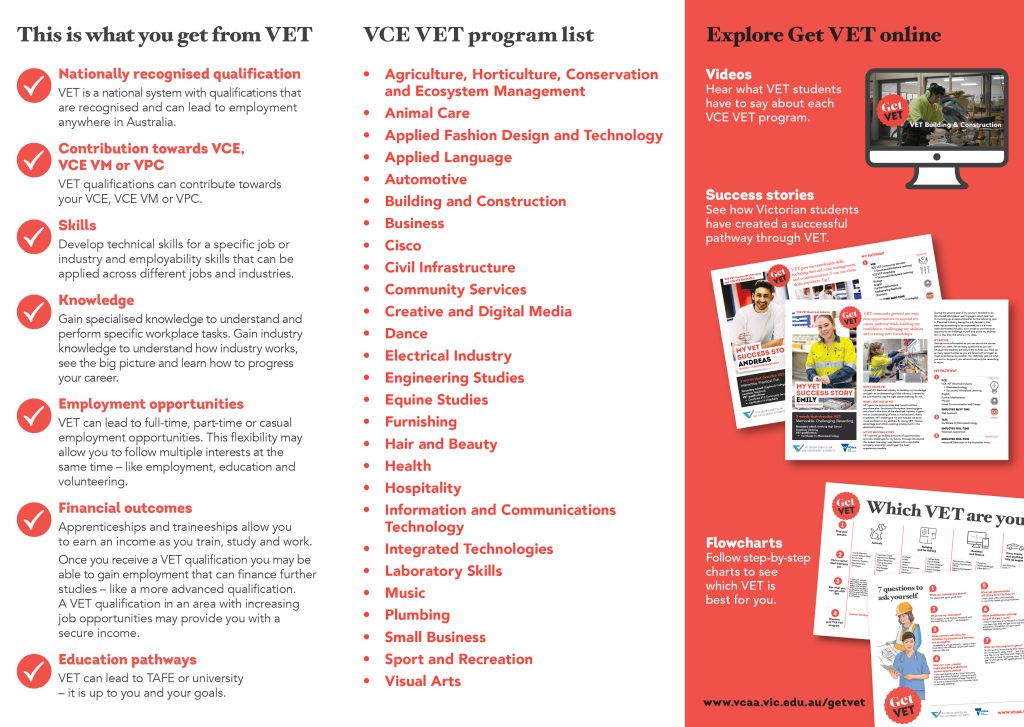What is VET?
Vocational Education Training (VET) is hands-on experienced training that gives students a nationally-recognised qualification. VET offers an extra qualification, practical training and competency based assessment, connected to the workplace. VET studies can contribute towards the VCE, VCE-VM and VPC studies.
Avila offers on-campus training qualifications and we work with external operators to provide a myriad of other pathway qualifications that provide choice and freedom for students. The on-campus VET options are Sport, Aquatics and Recreation Certificate III, Certificates I and II Hospitality and Active Volunteering Certificate II. Read below to discover more details about on-campus and external VET options.
Expression of Interest to Study a VET Certificate
VET Certificates
Sport, Aquatics & Recreation Certificate III
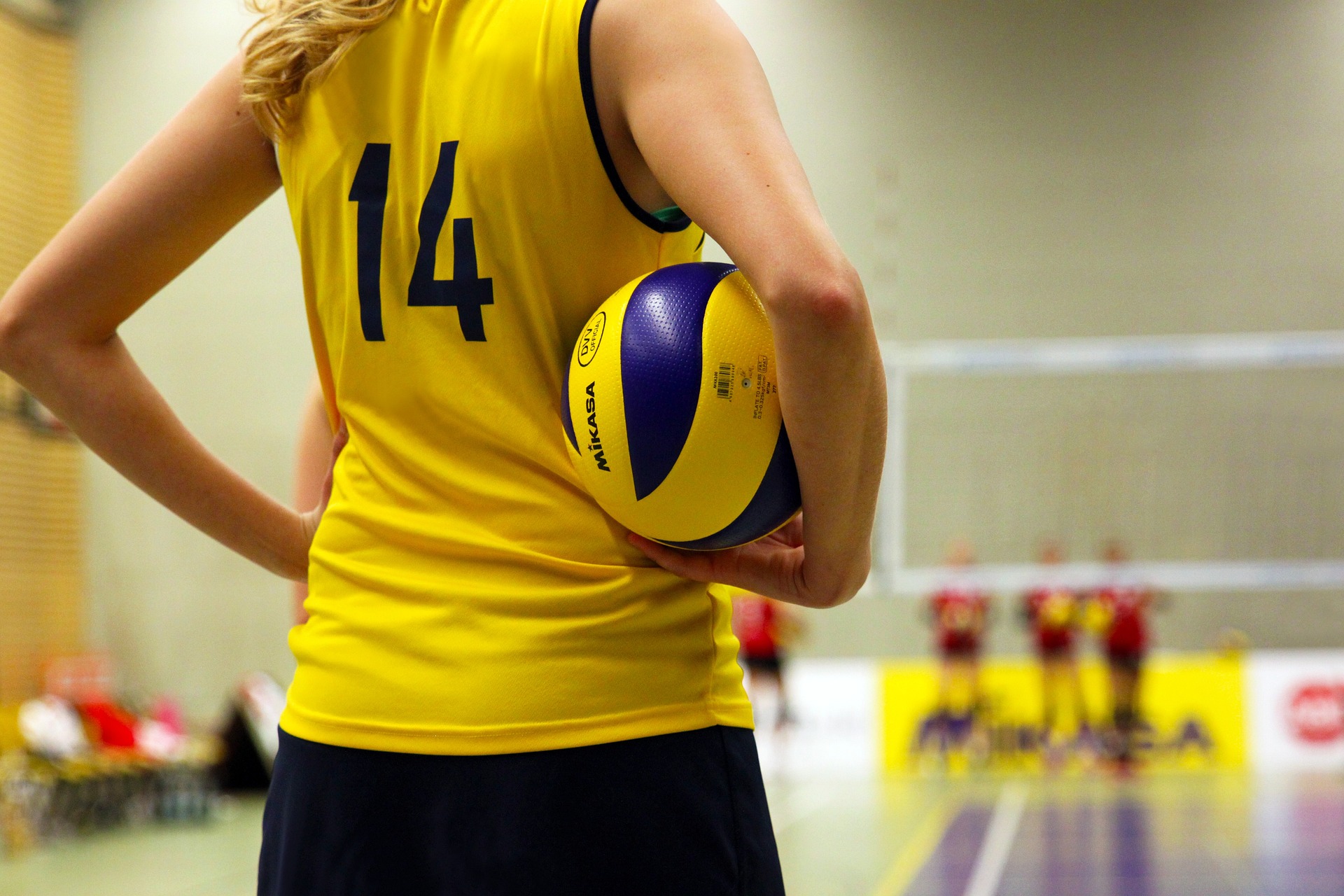
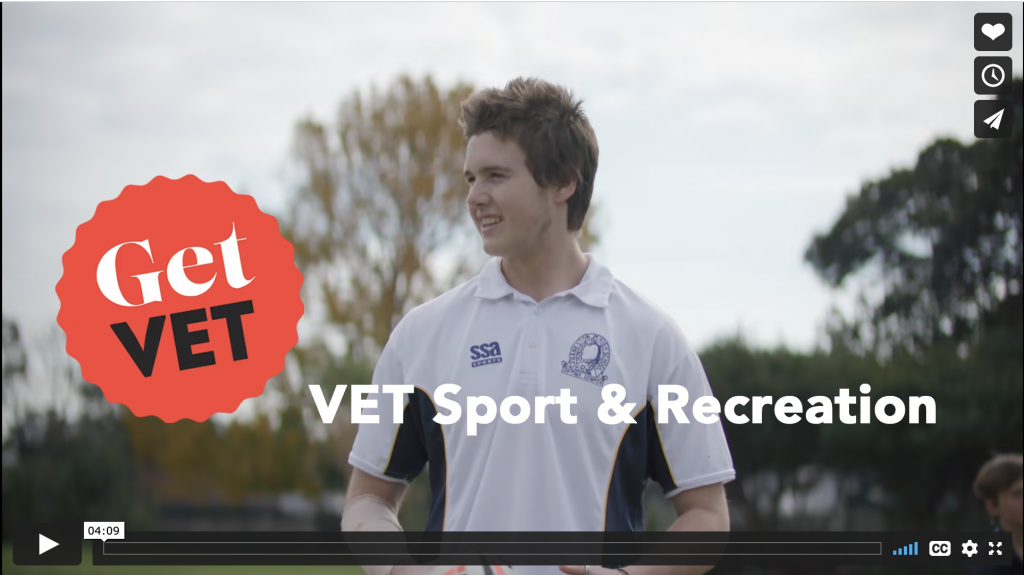
Overview
- Two year course
- Open to students in Years 10, 11 and 12
- Can be completed scored to contribute to an ATAR ranking or unscored
- This study will take one choice each semester from a student’s subject selection
- Can be exited after the first year in most circumstances with students receiving a Unit 1 and/or Unit 2 VCE credit
- Students will be expected to become involved in the schools’s extra-curricular sporting activities
Assessment
A range of units of competency including:
- Participate in WHS hazard identification, risk assessment and risk control
- Organise personal work priorities and development
- Provide first aid
- Participate in workplace health and safety
- Use social media tools for collaboration and engagement
- Conduct non-instructional sport, fitness or recreation sessions
- Plan and conduct programs
- Provide quality service
- Respond to emergency situations
Pathways
This qualification reflects the multi-skilled role of individuals in operational and customer support positions in the sport or community recreation industry. These individuals are competent in a range of activities and functions requiring autonomous work within a defined range of situations and environments.
They work in locations such as fitness centres, sporting grounds or complexes, leisure and aquatic centres and community recreation centres.
Certificate II Active Volunteering

Overview
Certificate II in Active Volunteering (CHC24015) is a qualification designed for entry level volunteers. It assists in developing foundational skills to participate in the sector, including what it means to be a volunteer, how to prepare to volunteer, how to navigate different environments, how to communicate effectively, basic work safety, use of technology, and approaching basic writing tasks. This is a single year long study and contributes a Unit 1 and a Unit 2 VCE VET sequence to a student’s senior school program.
Assessment
The topics of study include:
- Be an effective volunteer
- Work with diverse people
- Participate in workplace health and safety
- Communicate in the workplace
- Write routine workplace texts
- Develop personal effectiveness
- Use business software applications
- Minimum 20 hours of workplacement
Benefits
This course can assist you to:
- Obtain hands-on experience
- Gain familiarity with how workplaces operate
- Develop employability skills such as communication, teamwork and problem solving
- Provide evidence to future employers of your skills
- Develop or improve your interpersonal skills
- Explore potential career paths
- Gain entry into other vocational training programs, including Certificate III in Active Volunteering
- Support transition to higher education pathways
Overview
- One year course with the option of completing Certificate I or Certificate II
- Open to students in Years 10 and 11, 12
- This study will take one choice each semester from a student’s subject selections
- Students will be required to attend out of school hours events such as the Mother’s Day and Father’s Day breakfasts.
Certificate I Assessment
A range of units of competency including:
- working effectively with others
- providing customer information and assistance
- participating in safe work practices
- use of hygienic practices for hospitality service
- use of hygienic practices for food safety
Certificate I Pathways
This qualification reflects the role of individuals who participate in a range of routine and predictable hospitality work activities. They work under close supervision and are given clear directions to complete tasks. Certificate I provides a pathway to work in various hospitality settings, such as restaurants, hotels, motels, catering operations, clubs, pubs, cafés, and coffee shops.
Students can enrol in the Certificate II program in the following year.
Possible job titles include:
- bar useful
- food runner
- glass runner
- housekeeping assistant
- kitchen steward
- kitchen useful
Certificate II Assessment
A range of units of competency including:
- BSBWOR203: working effectively with others
- SITXCCS001: Providing customer information and assistance
- SITXWHS001: participating in safe work practices
- SITHIND001: use of hygienic practices for hospitality service
- SITXFSA001: use of hygienic practices for food safety
Certificate II Pathways
This qualification reflects the role of individuals who have a defined and limited range of hospitality operational skills and basic industry knowledge. They are involved in mainly routine and repetitive tasks and work under direct supervision.
This qualification provides a pathway to work in various hospitality settings, such as restaurants, hotels, catering operations, clubs, pubs, cafes and coffee shops.
Possible job titles include:
- bar attendant
- café attendant
- catering attendant
- food and beverage attendant
The school is partnered with AIET (121314) to deliver the course at Avila College with students enrolled with AIET (121314). Please note that another RTO is used to deliver/assess HLTAID011
External VET Training
Overview
Students can also choose to study a VET course not offered at Avila College from external providers.
- These are usually run on a Wednesday afternoon.
- The cost of these courses is in addition to the Avila College school fees.’ Avila College will contribute 20% of the tuition costs and usually Melbourne Archdiocese Catholic Schools (MACS) will also make a contribution.
- Students are responsible for their own transport to and from the external venues.
- Currently the most popular courses studied externally by Avila students are Certificate III Allied Health Assistance, Certificate III Beauty Services, Certificate III Animal Studies and Certificate III Early Childhood Education and Care, Certificate III in Screen and Media – Game Art Foundations, Certificate III in Information Technology – Game Programming Foundations and Certificate III in Visual Arts – Film and Visual Effects
- Any VET designed for secondary school students (VETDSS) may be chosen.
Pathways
More information videos about the range of VET course options are available on the GET VET website.
VET Course Guides
More about the VET Program
What do VET programs offer?
- A nationally recognised vocational certificate with credits built in just like other subjects
- Counts towards the VCE Certificates
- Contributes to the ATAR (if a scored VCE VET Program)
- Training in a specific industry area
- An opportunity to put knowledge and skills into practice in a simulated or actual workplace environment known as Structured Workplace Learning (SWL)
- A qualification which will provide access to further training
- Improved chances of getting work when finishing school
- Offer a pathway into apprenticeships and traineeships
What are the opportunities with VET?
- Vocational Education and Training in Schools (VET) programs are designed to expand opportunities and pathways for senior secondary students, and improve post compulsory educational outcomes as well as address the employment needs of industry in Victoria.
- Hands on learning, courses that relate directly to your chosen pathway, applies skills directly related to your pathway, industry links, accredited courses recognised Australia wide, stepping stones for further education.
- VET programs can contribute to a VCE, VCE (VM) and VPC program.
- Scored VET programs contribute to an atar RANKING.
Links
